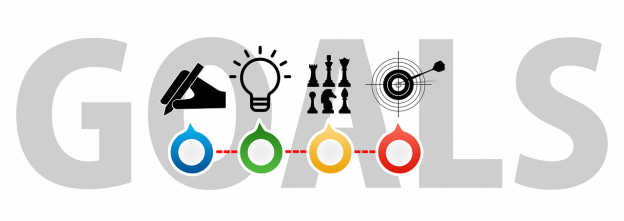In today’s fast-paced world, building a fulfilling career requires intentional planning and sustained effort. Whether you’re just starting out, contemplating a mid-career pivot, or striving to progress in your workplace, setting and achieving career goals is crucial for personal and professional growth. Let’s explore how to do this!
Why Setting Career Goals Matters
- Direction and Focus: Goals give you a roadmap, helping you make informed decisions about where to allocate your time and energy.
- Motivation: Knowing what you’re working towards fuels determination and resilience during challenging times.
- Accountability: Clear goals enable you to measure progress and stay on track.
- Skill Development: Targeted goals often require learning and growth, helping your skills stay relevant to your role.
How to Get Started!
Set goals that are realistic and achievable by using the SMART framework. For example, “Achieve the ILM Level 3 certificate in Leadership and Management qualification by December 2025”
- Specific: You have clearly defined what you want to achieve – completing the qualification.
- Measurable: It is easy to measure whether you achieve the qualification within the timescale.
- Achievable: This goal is achievable as the qualification should take 12 months to complete.
- Realistic: It is a realistic goal as you have time to dedicate to your studies.
- Time-bound: You have attached a deadline and completion date to create urgency.
Breaking down long-term goals into smaller, actionable steps can make them more manageable. Regularly review your goals to measure progress and make adjustments. Tools like career journals or project management software can help.
Industries evolve rapidly and staying competitive means continuously upgrading your skills. Embrace learning as a lifelong process. Regular feedback from managers, peers, or mentors helps you refine your approach and identify any blind spots. Flexibility is critical; if circumstances shift, reassess and adjust your goals without losing sight of your broader aspirations.
Overcoming Challenges
No journey is without obstacles, but resilience and strategy can help you overcome them.
- Procrastination: Break tasks into smaller steps, set deadlines, and minimise distractions.
- Fear of Failure: Reframe failure as a learning opportunity. Each setback is a chance to refine your approach.
- Lack of Motivation: Revisit your “why.” Remind yourself of the reasons behind your goals and the benefits of achieving them.
- Limited Resources: Be resourceful. Seek free or low-cost training programmes or find a mentor who can guide you.
Celebrate Your Wins. Recognising and celebrating your achievements, big or small, is essential. Success breeds confidence, so take a moment to enjoy milestones before moving on to the next challenge.
Final thoughts…
Setting and achieving career goals is not a one-time event but a dynamic process. Your aspirations may evolve, and that’s perfectly fine. The key is to remain focused, adaptable, and persistent. Remember, a fulfilling career isn’t just about reaching the destination; it’s about growing and enjoying the journey along the way.
Start today—define your goals, create your plan, and take the first step toward building the career of your dreams!

